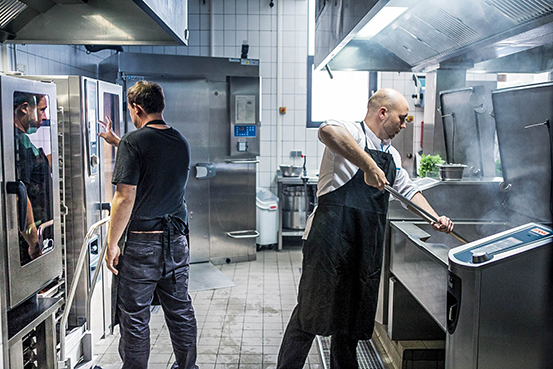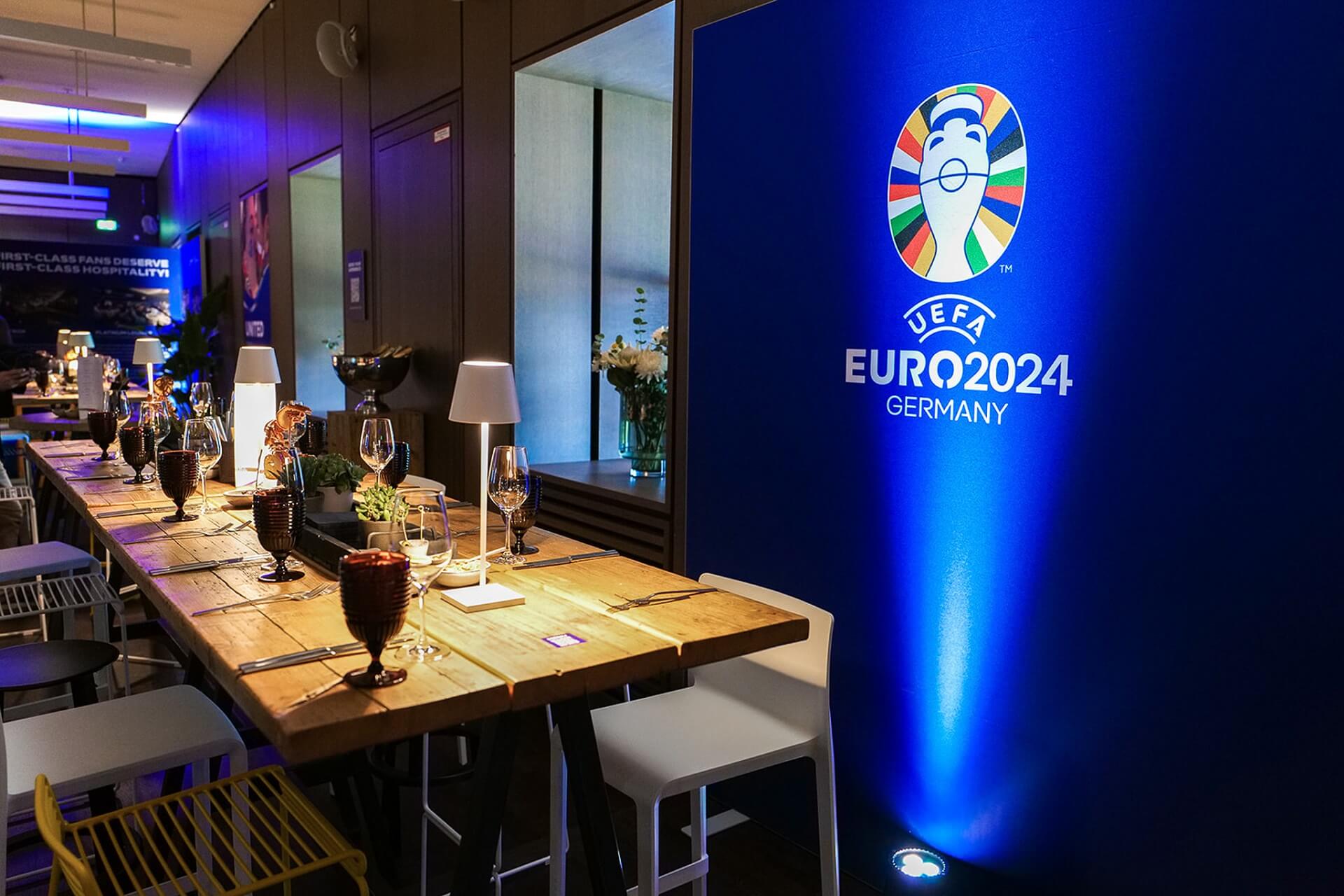First, the bad news: two developments suggest that everything’s getting worse for our industry. One, demographics aren’t developing in the restaurant industry’s favor – the populace in our part of the world is getting older, and people aren’t having enough kids to meet future labor needs, so qualified staff shortages are probably going to become an even bigger problem. Two, Generation Z is entering the workforce with a completely different concept of wage labor. Unlike previous generations, they have ZERO interest in spending nine hours a day on subservient drudge work, making sacrifices and getting ordered around by some moody nervous wreck of a boss. They watched their parents do it, which is how they know it’s a recipe for total burn-out. Okay, now for the good news: not only are those two things closely connected, but science has already recognized them as potential problems – and the solutions they’re working on are surprisingly promising. University professor Thomas M. Schneidhofer has been studying career research and career management for years now, so he has a uniquely in-depth understanding of what makes Generation Z’s future job-seekers tick. Now he’s putting that knowledge to good use by helping companies prepare to recruit Gen-Z employees as effectively as possible. “I started with four basic principles taken from motivational theory,” Schneidhofer says, “and sort of cobbled them together, so to speak. The acronym for those four principles is CARS. Businesses that implement them will have a chance at really providing employment opportunities that fit the next generation’s needs, which will ultimately help bind employees to the company long-term.” The striking thing about Schneidhofer’s CARS concept is that it not only captures Generation Z in a nutshell, it also converts that information into practical suggestions for the working world of tomorrow.
C for Completion
The C puts the focus on work as a meaningful activity. It’s something that needs to be completed – or rather, wants to be completed. “Take learning an instrument, for example,” Schneidhofer says. “We don’t do that in order to find a reproductive partner, we do it because it gives us a sense of personal advancement.” That urge, Schneidhofer says, is very deep-seated in all of us – “a fundamental anthropological principle,” as he puts it. “Wikipedia is another good example: people invest their time in it of their own volition, without getting paid for it, because it’s meaningful to them – they get a lot of feedback from the community, and they get to see how many people read their entries.” That brings up another point Schneidhofer considers central: feedback is essential to Generation Z. “This generation generally grows up quite sheltered, with parents who come to every parent-teacher conference and want to know what’s going well and what isn’t. Many of them even did self-grading in school.” However, Schneider warns that feedback can pose unexpected dangers. Unlike some other researchers, he believes that praise is counterproductive. “Praise can simply distract people from wanting to achieve things of their own volition and make them focus on just pleasing another person – their supervisors, their parents, whomever,” Schneidhofer says. “The best approach is to give a neutral, objective explanation of whether the person did something well or not. Anything they come away thinking of as praise or potential punishment is counterproductive, pure and simple.”

A for Autonomy
Several studies have shown that this generation of employees has a completely different, uncompromising understanding of work-life balance. To Generation Z, time is the new money, which is one reason why autonomy is one of the most important things for employers to keep in mind when it comes to attracting and keeping Gen-Zers. “As an employer,” Schneidhofer points out, “you’re already exerting indirect pressure – through tasks, goals, customers and so on. Just make sure you don’t turn it into direct pressure by constantly demanding compliance on every little thing. It’s far more important to foster engagement by helping employees understand the larger context of what they’re doing.” Software developers Atlassian provides a best-practices example of how autonomy can be extraordinarily valuable to both staff and employers: once a week, employees get 24 hours to work on whatever they want, whenever they want, with whomever they want. After those 24 hours are up, they can present their work at a business meeting – complete with beer and popcorn, of course. “As a result,” Schneidhofer says, “innovation at Atlassian increased significantly, and the likelihood of errors went down dramatically as well.” The most remarkable thing about this building block for success, he adds, is that “there’s always space for innovation!” Including at restaurants, in other words.
R for Reciprocity
The third principle is a hot-button issue, though it might not sound like one at first. Reciprocity – give-and-take – can be a real challenge for direct supervisors. “It boils down to a fundamental aspect of human nature. Instead of just looking at myself, I compare myself to the people around me and wonder, ‘Does that guy have it better than I do?’” So reciprocity is about fairness, but that’s only part of the story. The term “reciprocity” encompasses the ethical and moral dimensions of fairness – and in this context, it puts the focus on the individual employee’s perspective. Feedback is another element, but again, there’s more to it. Schneidhofer sees reciprocity as closely tied to remuneration, and recalls the famous capuchin monkey experiment conducted by Dutch behavioral scientist Frans de Waal. “The monkeys are happy to do the same job 20 times in a row or more, as long as they get a piece of cucumber in exchange. But if you have two monkeys side-by-side, and you stop rewarding them the same way – one of them cucumber, the other gets a grape – there’s a problem, because grapes are much tastier than cucumbers. The first monkey starts throwing the cucumbers back. In other words, the monkeys are perfectly happy to work forever in exchange for pieces of cucumber, but if they see that a different monkey is getting a better reward, it’s all over – they lose motivation, they no longer feel that it’s a meaningful activity.” Schneidhofer argues that this phenomenon is particularly applicable to Generation Z. Not because they’re monkeys – because they live in a hyper-networked world that constantly invites them to compare themselves to everyone else. This is one reason why Gen Z is particularly prone to the growing “quarter-life crisis” phenomenon described by American authors Abby Wilner and Alexandra Robbins in their 2001 best-seller, “Quarterlife Crisis: The Unique Challenges of Life in Your Twenties.” For employers, the key is to offer transparent pay that as many people as possible on the team consider fair – and, again, to provide regular feedback as an opportunity for mutual appreciation and optimization.
S for Significance
It’s more important than ever for employers to communicate the significance of their employees’ jobs. Gen-Z employees are less concerned about pay than they are work-life balance, and they’re more deeply committed to finding meaning in their lives – it’s a value this generation has been taught from a young age. No wonder: According to several studies, including one done in 2015 by the British market and opinion research institute YouGov, between a quarter and a third of employees questioned felt that their jobs made no meaningful contribution to society. Big corporations, in particular, have already taken measures to make themselves more attractive to the coming generation.
Skype, for example, invites applicants to help them “make the world a better place.” “As a result,” Schneidhofer says, “what would otherwise be a less attractive employer brand becomes a lot more appealing to Generation Z.” It’s not just about catchy mottoes or headlines with mass appeal, though. Rather, employers need to emphasize the significance of everyone’s day-to-day activities, and make a habit of highlighting it. “It’s about having a vision. For employers, that means figuring out all the opportunities for transcendence at that company.” As hopeless as the current situation may sometimes seem, it’s not that serious of a problem – provided that companies start preparing now for the coming generation of employees. Regardless of whether the industry is to blame for its own qualified staff shortages or not, it’s up to the managers of today to decide what the working world of tomorrow will be like.












